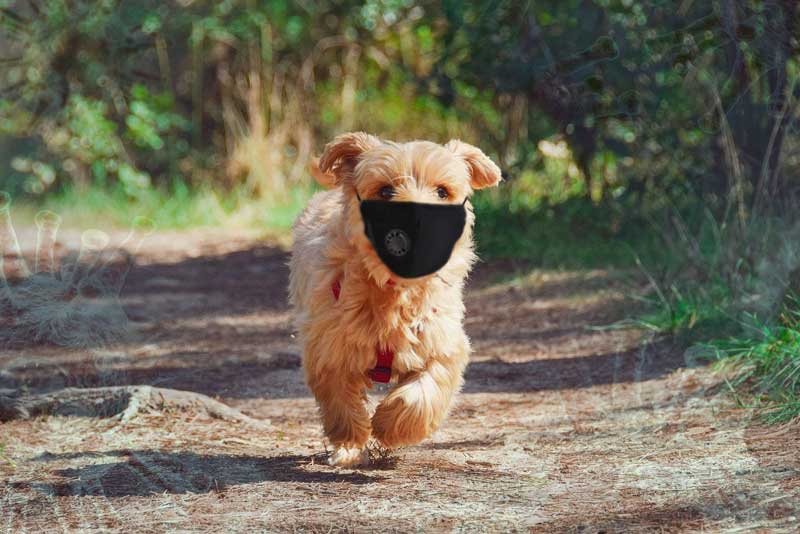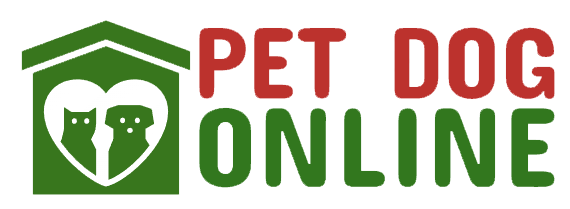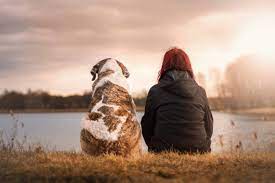Coronovirus in Dogs and pets and their symptoms
The reports from reliable organizations have cleared the questions haunting the worried pet parents- can animals spread Coronavirus- especially dogs and cats? Does the pandemic mean they have to part from their pets? No, it doesn’t- mostly. Extensive researches and experiments were conducted by several organizations in different parts of the world. Many of them concur in the matter that the virus isn’t a threat to pet animals for now. While there are different opinions on the matter, and there have been cases of proven infection cases in a few animals, so far no such conclusive mutation has taken place or detected in which Coronavirus has jumped species. Such mutations don’t happen that easily either.
Does it mean you don’t need to worry about your pets? Well, you do- a bit; there is no harm in being a bit alert. While it is pretty much a big relief that pets are relatively safe from the dangerous effects of Corona, there still are conditions or situations that can put not just your pets, but you and your family too at risk, if adequate attention is not paid. More or less, it is all about taking extra care and precautions.
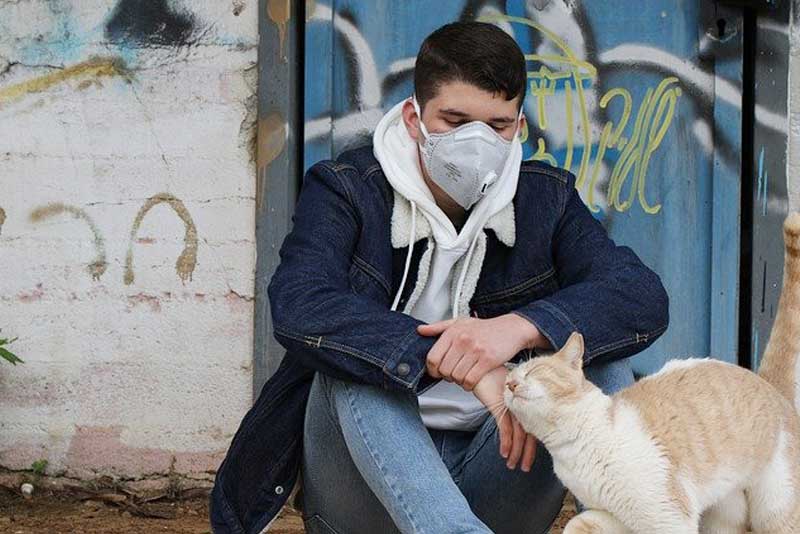
In this article, we explain how you can keep your pets safe from Corona.
How can pets be infected by Corona?
Animals- dogs and cats in particular- have been noticed to not show any Corona symptoms and are being rarely infected. In fact, in many cases, even if they are tested positive of Corona, they were surprisingly not sick. It is indeed a relief.
Lots of pet parents still take their pets outdoors for their walk. While it is a good thing to do, we can understandably expect that they can get Coronavirus on their coats. For example, if someone with corona sneeze around them, or if they come in contact with the virus as they habitually sniff or play around in the shrubs or bushes. Animals lick-clean and scratch themselves all the times, which may make them infected. Further, you and your family probably play amply with your pets, we guess. This would expose you to the virus as well. The reverse can be true too. For instance, if you happen to come in contact with the virus and play with your pets without washing your hands or cleaning yourself, they may get infected.
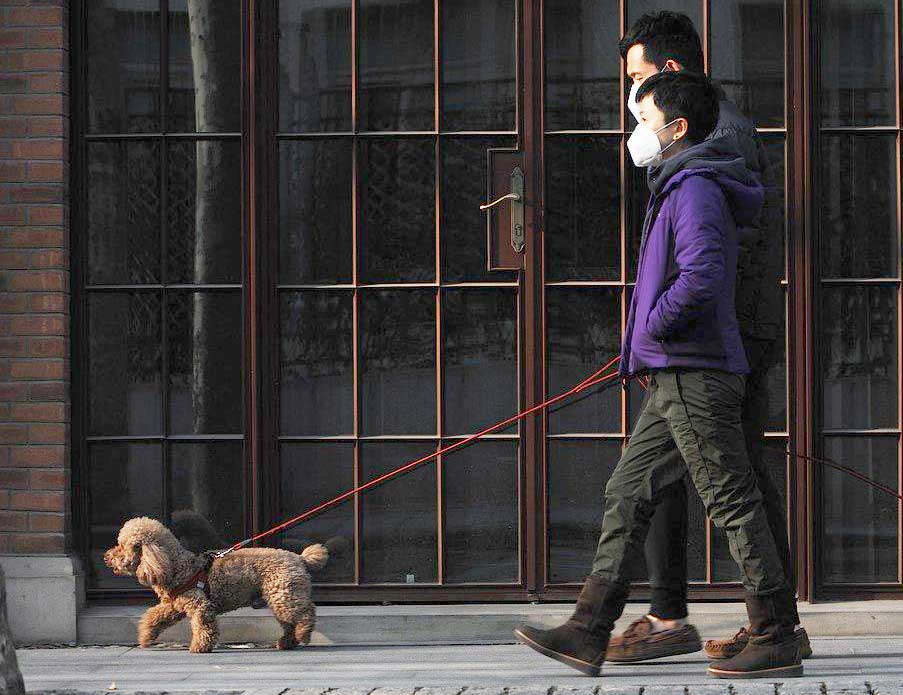
Now, we know Corona is a family of viruses. While most of the types detected so far aren’t injurious to animals, again, we don’t have enough conclusive knowledge. So, it would be rather thoughtful to avoid the risks altogether, for the sake of your furry pals. Let’s see what you can do to keep them safe.
What are the possible symptoms of Coronavirus in Dogs & Cats?
Researches are still going on in the matter of pets and Coronavirus. By and large, most of the animals with the virus don’t show much symptoms of any sort of sickness. But pay a bit of attention for some signs, noticing which you might want to care more and get your pet for a test.
How can we protect cats and dogs from Corona?
Thankfully for us, Coronavirus isn’t present in animals- which means, with a bit of care and adequate precautions, you can keep your pets safe. The whole section basically revolves around the cleaning routine to follow after the usual pet walk- we cannot emphasize enough on its importance. Here is what you can do to prevent your pet from carrying the virus on its fur, paws or other parts.
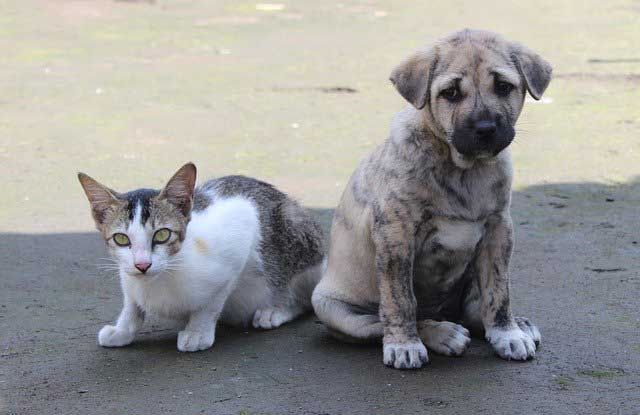
- Cut the walking area:
It would be ideal to stay around the place. Instead of going much further, you can walk the pet multiple times around your area. Market places would be a big no at this time, of course.
- Pet foot washer:
This is something you can use not just during this pandemic, but also on any other day, after your dog is back from walk. Pet foot washers can be helpful especially with pets who are reluctant to wear dog shoes. It is needless to mention all the dirt and germs that comes in contact with the paws of your pets when you them out for a walk. While using the product is pretty easy and convenient, it keeps the dirt from being brought into your home.
- Walking shoes:
An important step to take is to make your dog wear shoes particularly when taking them for a walk. We’d also suggest that you spray the shoes with Dettol and water mix. It won’t be an irritant to the skin of the dog, as we spray on the exterior, of the shoe, which won’t come in contact with the skin. Also, if you make your dog wear shoes within your home too, it is advisable to keep a separate pair of walking shoes that are not brought in. If you’d like to order a pair of walking shoes for your paw-pal, check this out.

- Taking care of the pet while outdoors:
Pay attention to the acts of the pet while outside. Don’t let him sniff around so much at risky or much-exposed places- bushes on the road, particularly.
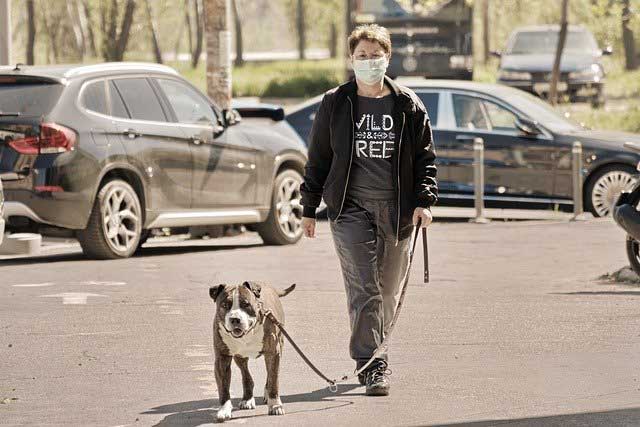
- Anti-bacterial wipes:
When you are back from the walk, be sure to use the anti-bacterial wipes at the entrance to wipe down the coat and face. This would ensure that even if the pet’s coat has caught the virus. Be thorough with the skin and coat around the mouth since dogs sniff a lot, particularly when outdoors.

- Anti-bacterial spray:
While you were out walking the dog, if any part of the leash had touched the ground, spray it. Spray the walking shoes before you keep them aside as well. Collar or harness touching any surface is unlikely coz anyway even when they poop neither of the two will touch any surface.

All that said, don’t worry too much. The chances of a well-cared pet animal getting infected or carrying the virus COVID-19 are quite too low. Particularly low in dogs. As for cats, they don’t have much need for outdoors.
Stay home, stay safe.
